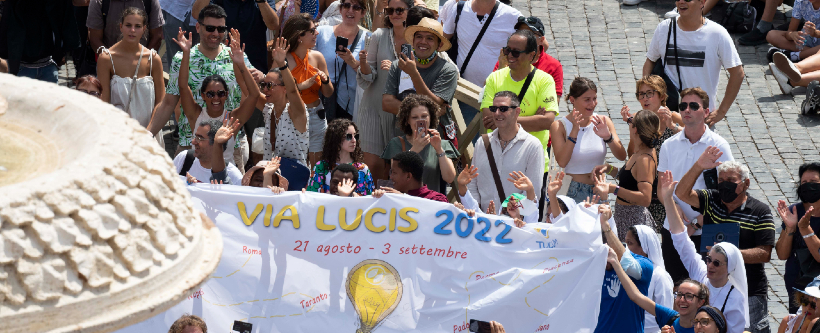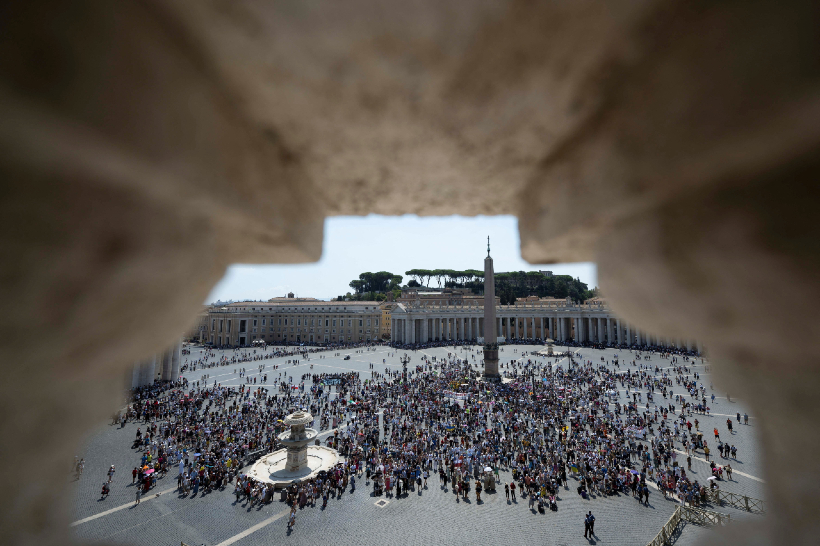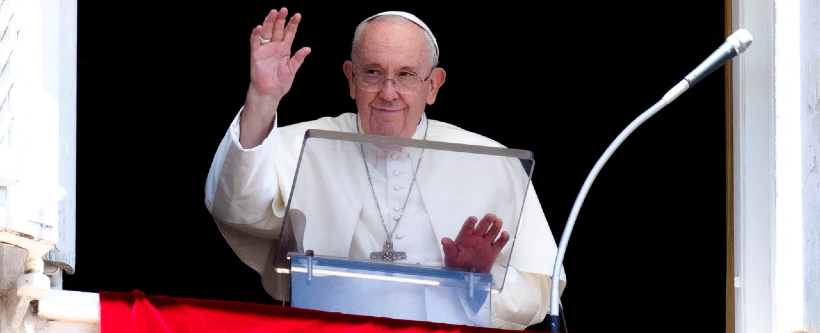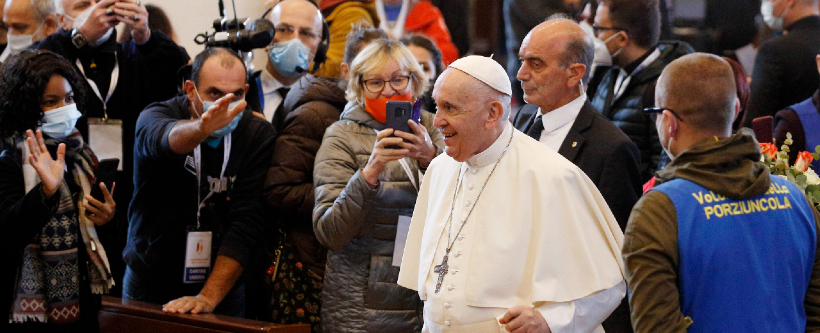Thousands of people joined Pope Francis in St Peter’s Square on Sunday, for the weekly recitation of the Angelus. With the sun peeking out through slightly overcast skies, the Holy Father spoke on the Gospel reading for the Thirtieth Sunday in Ordinary Time. In the day’s Gospel, Jesus is asked, “Teacher, which commandment in the law is the greatest?”

This response, the Pope continued, is not obvious, because in some ways, the Ten Commandments, given directly by God to Moses, were the most important, because they were conditions of the covenant between God and His people. But, the Pope said, Jesus wants to make us understand that without love of God and of our neighbour, there can be no true fidelity to the covenant.
In answering the Pharisees who had posed the question, Jesus sought to help them put their religious devotion in the right order; to help them understand “what truly matters, and what is less important.” In fact, Pope Francis said, Jesus’ own life was an example; His words and actions showed what was truly essential: love. Love, the Pope said, “gives impetus and fruitfulness to life and to the journey of faith: without love, both life and faith remain sterile.”
The ideal proposed by Jesus corresponds “to the most authentic desires of our heart,” the Pope continued. “In fact, we were created precisely in order to love and to be loved. God, Who is Love, has created us in order to make us partakers of His life, to be loved by Him and to love Him, and to love with Him all other persons.” This, Pope Francis said, “is God’s dream for man.”
But we can realize this dream only by being open to God’s grace. It is only through His grace that we are able to receive within ourselves the capacity to love. And it is precisely for this reason that Jesus offers Himself to us in Holy Communion. In the Eucharist, the Pope said, “we receive His Body and His Blood; that is, we receive Jesus in the greatest expression of His Love, when He has offered Himself to the Father for our salvation.”
Pope Francis concluded his remarks with the prayer that “the Holy Virgin might help us to welcome in our lives the ‘great commandment’ of love of God and of our neighbour.”
Vatican Radio






Facebook Comments